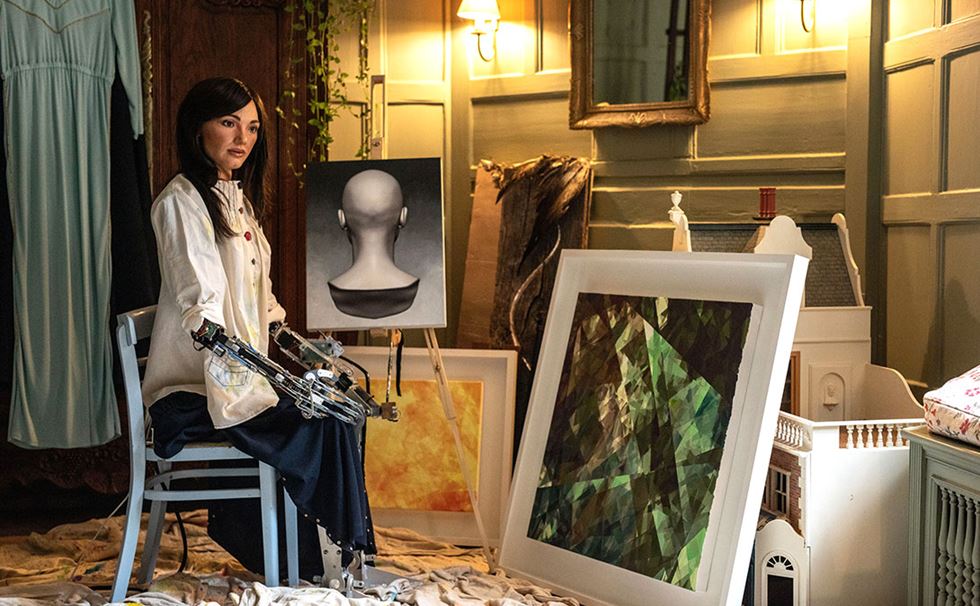
Ai-Da, a “robot artist,” testified before British lawmakers on Tuesday during a parliamentary hearing into how new technologies may impact the creative industries. Despite being an artificial creature, it was nevertheless capable of generating art.
It was introduced as “the world’s first ultra-realistic AI humanoid robot artist”

It was introduced as “the world’s first ultra-realistic AI humanoid robot artist”
It was introduced as “the world’s first ultra-realistic AI humanoid robot artist” and made an appearance in one of the elaborately wood-paneled rooms of parliament while sporting a short black wig and a pair of denim dungarees.
Ai-Da was developed by researchers at the University of Oxford and named after British mathematician and computer pioneer Ada Lovelace. It has a female humanoid face and exposed robotic arms.
“I depend on, computer programs and algorithms”, says Ai-Da

In a televised hearing presided over by the House of Lords Communications and Digital Committee, it responded to inquiries alongside the Ai-Da project’s director and the director of an art gallery, Aidan Meller.
“I am, and depend on, computer programs and algorithms. Although not alive, I can still create art,” Ai-Da said when asked how its creations differed from those produced by humans. (tropicanabakery.com)
A series of works by Ai-Da, including a portrait of the late Queen Elizabeth, have been displayed in exhibitions and galleries.
The committee heard testimony about how technology is affecting workers

The committee heard testimony about how technology is affecting workers in the creative industry from the humanoid robot, business professionals, and academics.
Ai-Da responded to the committee’s initial inquiry regarding how it created paintings by stating that cameras in its eyes, AI algorithms, and a robotic arm all assisted it in painting on a canvas.
Ai-Da also described how it was able to produce new poems by “analyzing a massive corpus of text” to find recurring themes and poetic forms.
“How this differs from humans is consciousness; I do not have subjective experiences despite being able to talk about them,” Ai-Da said.






